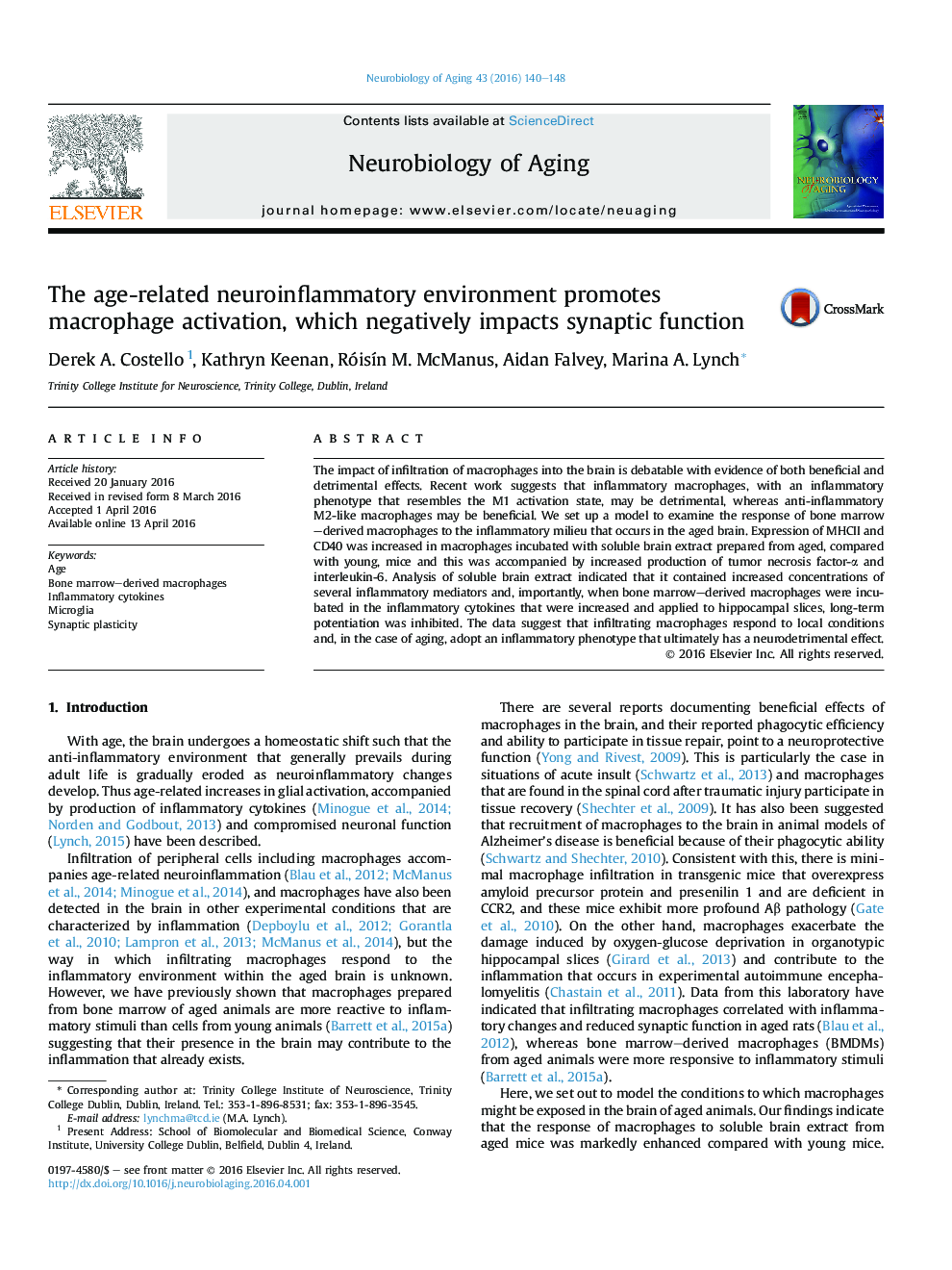| کد مقاله | کد نشریه | سال انتشار | مقاله انگلیسی | نسخه تمام متن |
|---|---|---|---|---|
| 330465 | 1433541 | 2016 | 9 صفحه PDF | دانلود رایگان |
The impact of infiltration of macrophages into the brain is debatable with evidence of both beneficial and detrimental effects. Recent work suggests that inflammatory macrophages, with an inflammatory phenotype that resembles the M1 activation state, may be detrimental, whereas anti-inflammatory M2-like macrophages may be beneficial. We set up a model to examine the response of bone marrow–derived macrophages to the inflammatory milieu that occurs in the aged brain. Expression of MHCII and CD40 was increased in macrophages incubated with soluble brain extract prepared from aged, compared with young, mice and this was accompanied by increased production of tumor necrosis factor-α and interleukin-6. Analysis of soluble brain extract indicated that it contained increased concentrations of several inflammatory mediators and, importantly, when bone marrow–derived macrophages were incubated in the inflammatory cytokines that were increased and applied to hippocampal slices, long-term potentiation was inhibited. The data suggest that infiltrating macrophages respond to local conditions and, in the case of aging, adopt an inflammatory phenotype that ultimately has a neurodetrimental effect.
Figure optionsDownload high-quality image (193 K)Download as PowerPoint slide
Journal: Neurobiology of Aging - Volume 43, July 2016, Pages 140–148
